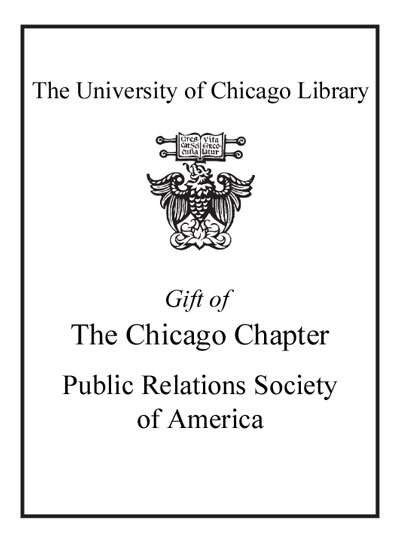Review by Choice Review
Law (a pharmaceutical journalist) delivers a tour de force evaluation of the pharmaceutical industry, including its political and economic power, manipulation of the public's naive trust in medicine, and corruption of scientific research. Her aim is "to consider how the medicines business works and how it might be directed towards delivering a better deal for the public who pay for it." The crux of this book, part 2, "When the Good Stay Silent," focuses on the Vioxx (rofecoxib) and selective serotonin reuptake inhibitor (SSRI) antidepressant stories, both of which expose the malaise of medicine and the failure of government regulation that is meant to protect the public. This is the story of the conflict between the goals of corporate wealth and public health, the latter presently losing to the former. The closest comparison to this book is Marcia Angell's The Truth about the Drug Companies (CH, May'05, 42-5297). ^BSumming Up: Recommended. General readers, professionals, health care practitioners, advanced-level undergraduates, graduate students. L. B. McHenry California State University--Northridge
Copyright American Library Association, used with permission.
Review by Booklist Review
British journalist Law deconstructs the relationship between Big Pharma, on one hand, and medical professionals and patients, on the other, and declares it unhealthy for everybody, though not financially for a handful of major international pharmaceutical companies. How can it be healthy when those companies' annual marketing budgets outstrip the annual budgets of all of the medical schools in the U.S. combined? How can it be healthy when those companies pick and choose which clinical tests of new drugs will be made public? How can it be healthy when the regulating agencies in charge of protecting public health interests are inexorably tied to the pharmaceutical industry? On the other hand, who other than those with ties to pharmaceutical companies can decipher the science-speak of all their reports? And who is to speak for the everyman seeking relief from the pain of everything from real illness to aging? Law's conclusion won't be popular, since she lays the burden on doctors to advocate for their patients, often at the expense of Big Pharma. And while it is some comfort to know that the U.S. isn't alone in its health care woes, it is still darn little comfort. --Donna Chavez Copyright 2006 Booklist
From Booklist, Copyright (c) American Library Association. Used with permission.
Review by Publisher's Weekly Review
The drug business is the most profitable in all of capitalism, journalist Law notes in this scattershot indictment of the pharmaceutical industry, but what do consumers get for the money shoveled into it? A dwindling stream of exorbitantly expensive new drugs, she contends, most of them ?me-too? competitors, patent-prolonging reformulations of existing products or marginally effective nostrums for diffuse complaints; vast marketing budgets to cajole consumers into demanding?and doctors into prescribing?unnecessary medications; biased scientific studies and corrupted or intimidated researchers; a regulatory system lobbied and suborned into allowing unsafe and ineffective drugs on the market; and a society that automatically pops a pill for every discontent, real or imagined. Law offers a comprehensive, if disorganized, rehash of a now familiar but still timely portrait of drug companies? perfidy and greed, studded with case studies of firestorms like the Vioxx scandal and the controversy over the possibly deadly side-effects of anti-depressants. She?s on shakier ground when she dilates her case into a brief against conventional medicine and in favor of a murky ?holistic? regimen of ?complementary??i.e. alternative?therapies that harmonize with ?the body?s natural intelligence? and exploit the ?untapped healing power? of the placebo effect. Law?s flirtations with fringe conceits weaken an otherwise serviceable science-based critique of the drug industry. (Apr. 1) Copyright 2006 Reed Business Information.
Review by Library Journal Review
If money is the root of all evil, how much more evil might things get if the principal players were the pharmaceutical industry (the titular "pharma"), the healthcare industry, Big Government and politicians at all levels, lobbyists, and a host of less moneyed groups all connected on the Internet? In classic muckraking tradition, Law, a pharmaceutical journalist, has undertaken to expose how the massive influence of pharma megabucks corrupts the entire healthcare system to the complete detriment of public health and shows "how market forces in medicine are responsible for the kind of healthcare we receive." His well-researched but complex and occasionally repetitive narrative is not an easy read but serves as an eyeopening study in commercial/public/private corruption and offers a significant collection of facts and figures for those who would enter the quagmire of big pharmaland. Wherever Marcia Angell's The Truth About the Drug Companies: How They Deceive Us and What To Do About It is read, Law's book will be a welcome and complementary addition. Highly recommended for healthcare, academic, and public libraries.-James Swanton, Harlem Hosp. Lib., New York (c) Copyright 2010. Library Journals LLC, a wholly owned subsidiary of Media Source, Inc. No redistribution permitted.
(c) Copyright Library Journals LLC, a wholly owned subsidiary of Media Source, Inc. No redistribution permitted.
Review by Choice Review
Review by Booklist Review
Review by Publisher's Weekly Review
Review by Library Journal Review

